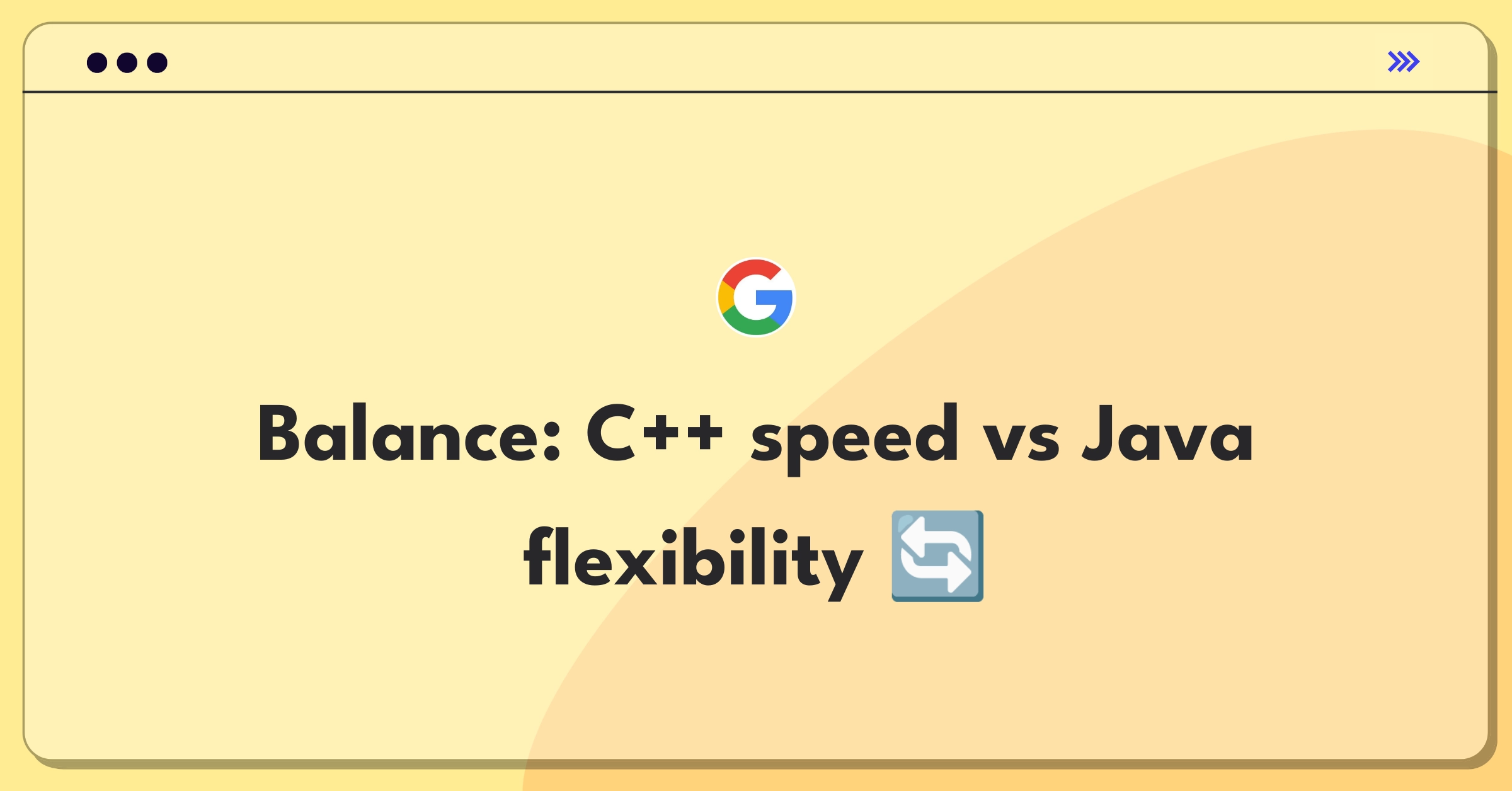Comparing C++ and Java: Technical Foundations for Product Development at [Company Name]
C++ and Java are both object-oriented programming languages, but C++ offers lower-level memory management and faster performance, while Java provides platform independence and automatic memory management through garbage collection.
Introduction
The technical challenge we're addressing is understanding the key differences between C++ and Java, two prominent programming languages in software development. This comparison is crucial for making informed decisions about technology stack choices, which directly impact product scalability, performance, and feature set capabilities.
I'll approach this by:
- Clarifying technical requirements and context
- Analyzing key differences
- Proposing use case scenarios
- Outlining implementation considerations
- Discussing performance metrics
- Addressing risk management
- Exploring long-term technical strategy
Tip
Ensure alignment between language choice and specific product requirements to optimize development efficiency and product performance.
Step 1
Clarify the Technical Requirements (3-4 minutes)
Looking at our product development landscape, I'm considering how language choice might impact our ability to deliver features efficiently. Could you provide some context on our current tech stack and the types of applications we're developing?
Why it matters: Determines if we need to consider interoperability with existing systems or if we're starting fresh. Expected answer: Mix of web and native applications with varying performance requirements. Impact on approach: Would need to consider language strengths for different application types.
Considering potential performance-critical components, are there any specific areas where we're hitting bottlenecks or anticipating high computational demands?
Why it matters: C++ often excels in performance-critical scenarios, while Java might offer faster development for less demanding applications. Expected answer: Some data processing modules require high performance. Impact on approach: Might suggest a hybrid approach using C++ for performance-critical components.
Regarding our development team's expertise, what's the current skill distribution between C++ and Java developers?
Why it matters: Team expertise can significantly impact development speed and code quality. Expected answer: More Java expertise in-house, with some C++ specialists. Impact on approach: Might lean towards Java for faster development, unless performance gains justify the learning curve.
From a deployment perspective, are we targeting specific platforms or aiming for cross-platform compatibility?
Why it matters: Java's "write once, run anywhere" philosophy might be advantageous for cross-platform needs. Expected answer: Targeting multiple platforms including desktop and mobile. Impact on approach: Java's platform independence could be a significant advantage.
Tip
After clarifying these points, I'll proceed with the assumption that we're developing a mix of applications with varying performance needs and targeting multiple platforms.
Subscribe to access the full answer
Monthly Plan
The perfect plan for PMs who are in the final leg of their interview preparation
$99 /month
- Access to 8,000+ PM Questions
- 10 AI resume reviews credits
- Access to company guides
- Basic email support
- Access to community Q&A
Yearly Plan
The ultimate plan for aspiring PMs, SPMs and those preparing for big-tech
$99 $33 /month
- Everything in monthly plan
- Priority queue for AI resume review
- Monthly/Weekly newsletters
- Access to premium features
- Priority response to requested question


.png)